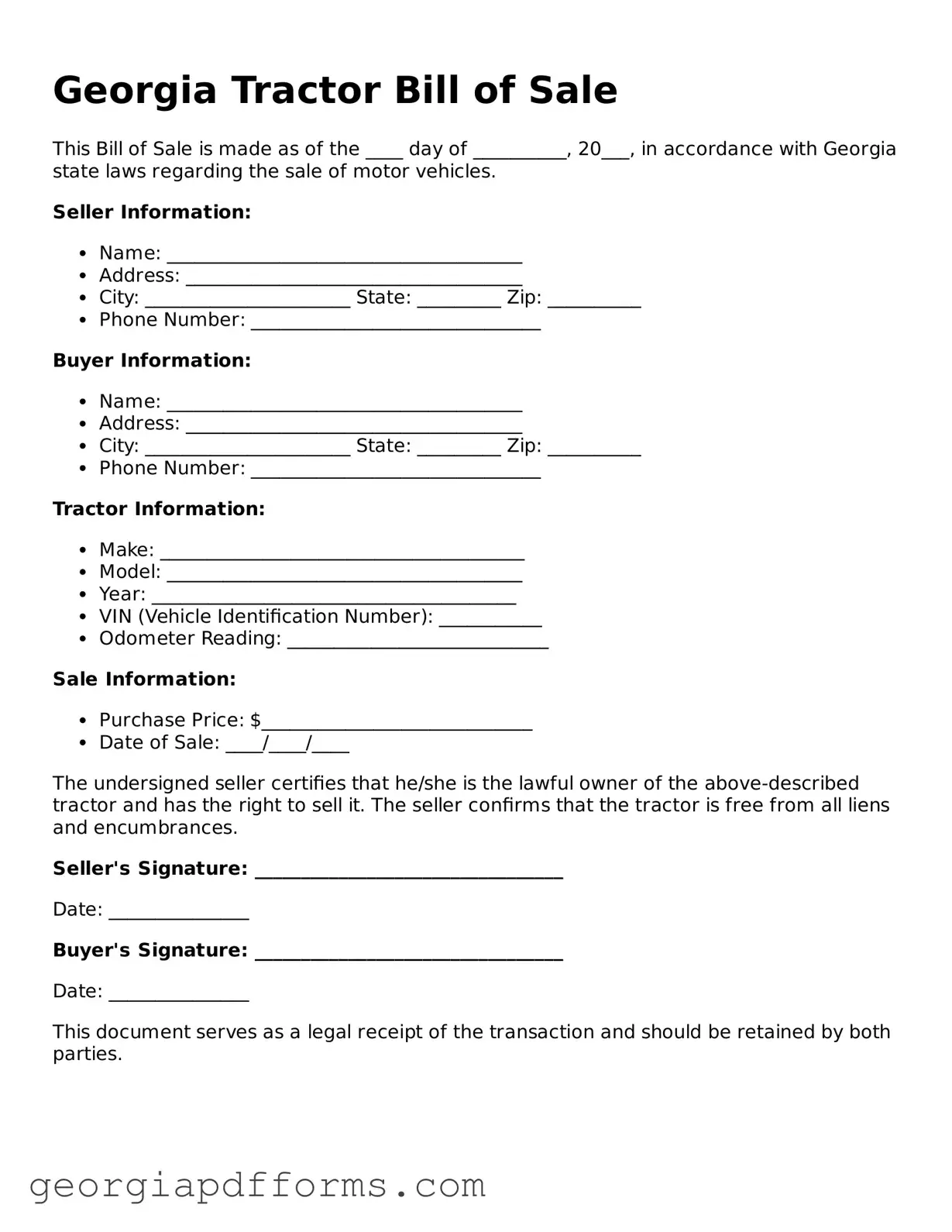What is a Georgia Tractor Bill of Sale?
A Georgia Tractor Bill of Sale is a legal document that records the sale of a tractor from one party to another. It includes important details such as the buyer and seller's names, the tractor's identification number, make, model, and sale price. This document serves as proof of the transaction and can be useful for registration and tax purposes.
Why do I need a Bill of Sale for a tractor?
Having a Bill of Sale is crucial for several reasons. It provides legal protection for both the buyer and seller by documenting the terms of the sale. This form can help prevent disputes in the future by clearly stating what was agreed upon. Additionally, it may be required when registering the tractor with the state or for tax purposes.
What information is needed to complete the Bill of Sale?
To complete a Georgia Tractor Bill of Sale, you will need the following information: the full names and addresses of both the buyer and seller, the tractor's make, model, year, and Vehicle Identification Number (VIN), the sale price, and the date of the sale. It’s also helpful to include any additional terms agreed upon by both parties.
Is the Bill of Sale required to be notarized?
No, a Bill of Sale for a tractor in Georgia does not need to be notarized to be valid. However, having it notarized can add an extra layer of security and authenticity to the document. It may also be beneficial if you ever need to prove the transaction took place.
Can I use a generic Bill of Sale form for my tractor sale?
While you can use a generic Bill of Sale form, it is advisable to use a specific Georgia Tractor Bill of Sale form. This ensures that all necessary details specific to tractor sales are included. Using a tailored form can help avoid any omissions that could lead to complications later on.
What should I do after completing the Bill of Sale?
After completing the Bill of Sale, both the buyer and seller should keep a copy for their records. The seller should also provide the buyer with any additional documents required for registration, such as the tractor's title. Finally, the buyer should take the Bill of Sale to their local Department of Motor Vehicles (DMV) to register the tractor in their name.
What happens if there are issues after the sale?
If issues arise after the sale, the Bill of Sale can serve as evidence of the transaction and the agreed-upon terms. If there are disputes regarding the condition of the tractor or payment, both parties can refer back to the document. It is recommended to resolve any disagreements amicably, but legal action may be considered if necessary.

